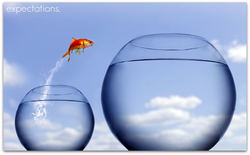 I am pretty excited to see my babies this late Wednesday evening. To be fair and a bit more accurate, however, they are no longer infants or children, and they are certainly no longer “mine.” The little boy with that adorably chubby, peach fuzz face who happily played with Legos for hours on end and devoured books like they were candy, is now a junior in college studying propaganda, ancient European history, satire and media, and a fun loving summer camp counselor who sports a full beard and tops out at six feet exactly (although he looks taller every time he comes home and, no, I am not shrinking, yet). That little girl with the equally chubby cheeks who created fairy houses in the woods, watched the chickens scratch in their yard for hours, and begged for riding lessons (until we gave in), is an independent young woman who just completed a cooking internship in Massachusetts, is a fiery advocate for social justice for all beings, is an amazing artist and poet, and is headed to Portland, Oregon to live and work for six months. In the last few months, since they left home, many people have asked us about the empty nest. My response has been immediate and swift every single time; “it feels as natural as breathing.” This is what was supposed to happen: we did our job as parents (the best we knew how), and then they flew free. At times I miss having them around, but they are out forging their own lives with all the joys, mistakes, and disappointments that go along with being alive. And that thought makes me very happy. Another friend asked recently: “why are your children motivated and self-directed?” My first answer was: “I don't really know.” Then I started thinking about it (as I am often wont to do). Our children have always been very strong-willed, and some would say extremely stubborn. And they have always been deep thinkers. (Hmmm, wonder where that came from?) Are they genetically programmed to be independent and self-directed or was it part of their upbringing? Which leads us to that age-old anthropological question of nature vs. nurture. When exploring this idea with some high-school students a few years ago, we collectively decided it is a combination (and after prolonged and sometimes heated discussion, we arbitrarily placed it at 50/50). We agreed that our genes play a huge role in who we are in terms of both looks and personality; however, they don't tell the whole story of each individual. The defining ingredient is often how we are treated as children. If you are supported with unconditional love, respect, and discipline as a child, you will most likely become an empathetic adult. If you are exposed to challenges as a child and expected to explore ideas to overcome them, you will be come a problem-solver. If you are trusted to make judgments and accept that mistakes may go along with them, you will understand decision-making and disappointment. If you are allowed to be bored or left to your own devices for periods of time, you will know how to productively entertain yourself. These life skills are gifts given to you through your family's nurturing discipline and expectations. Helicopter parenting, however, is a growing phenomenon that has experts concerned about a generation of kids who are not ready to join the ranks of adulthood because they are smothered with love and protected from the very life they are supposed to be living and the world they are supposed to be learning about. This has created a crisis of gigantic proportion in the world of higher education and in the work force. We have many young adults who are self-centered, immature, and unable to interpret or decipher moral code. They literally don't know how to deal with real life. When I think back to my own childhood, besides hating school and playing outside in all weather, my memories center around the silent, positive expectations my parents had for my three siblings and me. These were not specific or detailed; Mom and Dad did not expect any of us to become doctors, high-powered lawyers, or corporate tycoons who make tons of money. These were for the most part moral standards, and as time went on, I translated those into different expectations for myself. I expected to go to college and do well. I expected to be independent and support myself. I expected to stay on the “right” side of the law and be a kind person. I expected to be smart, creative, and a problem-solver. Have those series of expectations propelled me to the place I am today? Are my children independent, motivated, self-directed learners because that is what we expected of them? Are they empathetic, mature young adults because they have learned how to create expectations for themselves? If the answer is yes, how can we help those young people who have not acquired that particular skill? Is this something that can be taught in a classroom, or does it have to come through hands-on experience? These are questions that professionals on college campuses around the country are addressing now as they continue their ongoing work to design First Year Programs and intense orientation processes to guide students through the college experience and into adulthood. I certainly don't have all of the answers, but I would argue that one way to turn this crisis around is to make sure our kids understand we have positive expectations for them. Let them know we trust them to make decisions about what directly affects their lives. Offer them a chance to develop problem-solving skills. Encourage them to get creative (messy) and to think outside the box. Give them the opportunity to work cooperatively with people from all walks of life. Provide time and space for personal contemplation. And, of course, love them unconditionally. If there is one thing that I am sure of, it is that the world will be completely different in 5-10-15 years. We won't need people with specific skills to fill the jobs available today, because most of those careers will be extinct. We will, however, need people who can think for themselves, who can offer an empathetic response to any problem and be comfortable in their own skin. We will depend on the people who expect to create a better world for themselves and for future generations.
0 Comments
Your comment will be posted after it is approved.
Leave a Reply. |
|
© 2024 Whole Learners, Inc. 501(c)3
Deep Root Center
48 Riverside Drive, Canton, NY 13617
315*323*1435/[email protected]
Deep Root Center
48 Riverside Drive, Canton, NY 13617
315*323*1435/[email protected]



